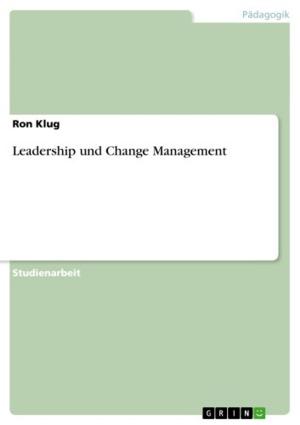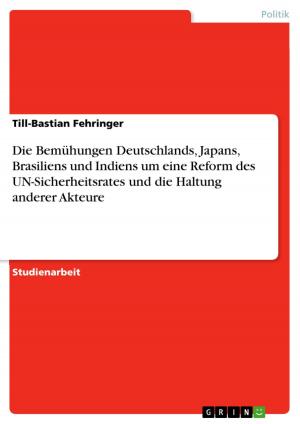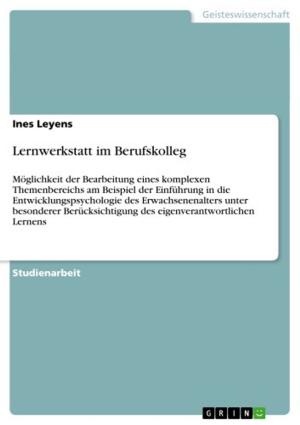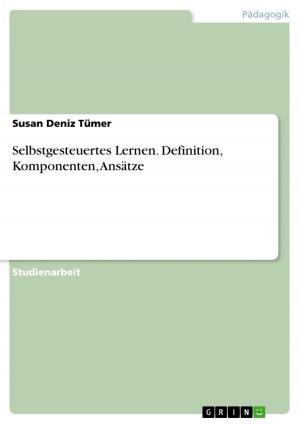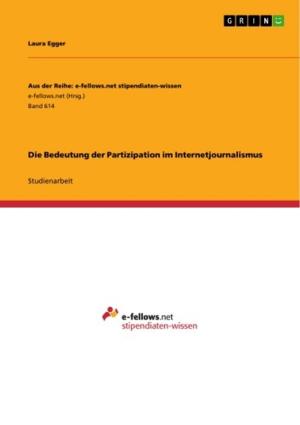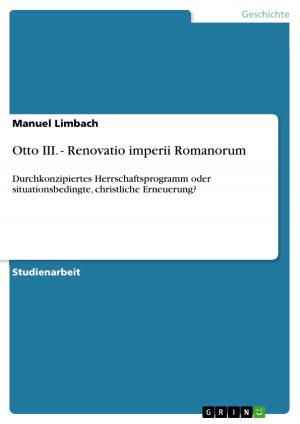Critical assessment of the human rights situation in Cambodia with simultaneous consideration of the country´s historical context
Nonfiction, Reference & Language, Language Arts, Journalism| Author: | Urs Endhardt | ISBN: | 9783656018094 |
| Publisher: | GRIN Verlag | Publication: | September 29, 2011 |
| Imprint: | GRIN Verlag | Language: | English |
| Author: | Urs Endhardt |
| ISBN: | 9783656018094 |
| Publisher: | GRIN Verlag |
| Publication: | September 29, 2011 |
| Imprint: | GRIN Verlag |
| Language: | English |
Essay from the year 2011 in the subject Communications - Journalism, Journalism Professions, grade: 1,3, University of Lincoln (Media and Humanities), course: International Human Rights for Journalists , language: English, abstract: If you will ever visit Cambodia, you will soon notice that it is virtually impossible not to fall in love with that little, but extraordinarily fascinating country. The amiable and ever-smiling Khmer (the predominant ethnic group in Cambodia), the rich history and heritage of the country, and the beautiful jungles and beaches appeal to visitors since Portuguese adventurers first set foot in the country in the 16th century. But at the same time, the country also has a dark side, originating from its long history of war and violence. Even today, as Cambodia slowly learns to come to terms with its past, things are far from perfect. While human rights are violated on a daily basis, an increasingly autocratic state seems to be more concerned about the interests of the rich and powerful than about those of the whole of the population. In this essay I am going to investigate the current human rights situation in Cambodia by examining reports of national and international human rights organizations, press reports, and books. I will also try to find out which role the violent past of Cambodia and the distinctive peaceableness of its Buddhist population play in this context.
Essay from the year 2011 in the subject Communications - Journalism, Journalism Professions, grade: 1,3, University of Lincoln (Media and Humanities), course: International Human Rights for Journalists , language: English, abstract: If you will ever visit Cambodia, you will soon notice that it is virtually impossible not to fall in love with that little, but extraordinarily fascinating country. The amiable and ever-smiling Khmer (the predominant ethnic group in Cambodia), the rich history and heritage of the country, and the beautiful jungles and beaches appeal to visitors since Portuguese adventurers first set foot in the country in the 16th century. But at the same time, the country also has a dark side, originating from its long history of war and violence. Even today, as Cambodia slowly learns to come to terms with its past, things are far from perfect. While human rights are violated on a daily basis, an increasingly autocratic state seems to be more concerned about the interests of the rich and powerful than about those of the whole of the population. In this essay I am going to investigate the current human rights situation in Cambodia by examining reports of national and international human rights organizations, press reports, and books. I will also try to find out which role the violent past of Cambodia and the distinctive peaceableness of its Buddhist population play in this context.






